Are you looking to express your heartfelt apologies to a mentor who has guided you through your journey? Crafting the perfect letter can help you convey your sincere remorse while also showing appreciation for their support. A well-structured apology not only mends relationships but also strengthens the bond you share. Dive in to discover how to write a meaningful apology letter and restore that invaluable connection with your mentor!
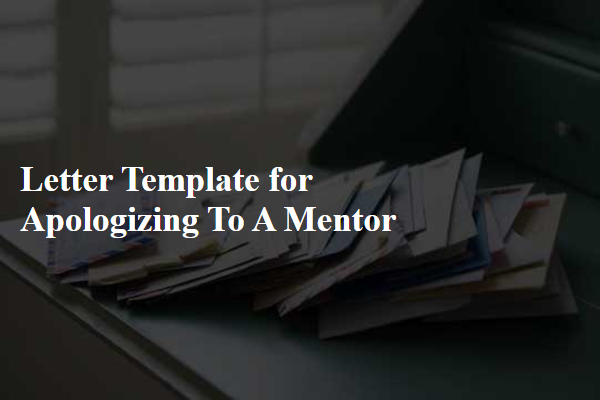
Sincere Apology Statement
A sincere apology involves acknowledging mistakes, expressing regret, and seeking forgiveness. Mentorship is a valuable relationship built on trust and respect. When an error occurs, it's essential to communicate openly. Mention specific actions that led to the apology, such as missed deadlines or ineffective communication. Emphasizing the mentor's impact can reinforce appreciation. Providing assurance of commitment to improvement and learning can strengthen future interactions. This thoughtful approach fosters a positive and enduring mentorship bond, nurturing growth and accountability.
Specific Incident Description
An unexpected delay occurred during the project presentation on September 12, 2023, which I had prepared under your guidance at the University of California, Los Angeles. Technical issues with the projector resulted in an inability to display key slides showcasing data analysis and conclusions. This incident disrupted the flow of the presentation and hindered my ability to convey the research findings effectively to the audience composed of esteemed faculty and peers. Your invaluable insights throughout the research process were overshadowed by this unforeseen circumstance, and I regret not being able to reflect the quality of your mentorship during the event.
Acknowledgment of Mentor's Impact
Mentorship plays a pivotal role in shaping personal and professional growth. Acknowledging the influence of a mentor, such as Dr. Jane Smith, a renowned educational psychologist, underscores the importance of guidance in one's development journey. Dr. Smith's insights during weekly sessions over a span of six months (a transformative period) fostered resilience and critical thinking, significantly enhancing skills crucial for success in the field of psychology. Recognizing contributions like personalized feedback on project presentations and encouragement during challenging times highlights the invaluable nature of mentorship. Apologizing sincerely for any perceived shortcomings in communication or commitment can help mend and strengthen this vital relationship.
Expression of Regret and Lessons Learned
Mentorship provides invaluable insights and guidance, often shaping personal and professional development. The journey of learning from a mentor, such as an experienced professional in a specific industry, can be marred by misunderstandings or oversights, resulting in expressions of regret. Apologizing might stem from failing to meet expectations during a collaborative project, neglecting to communicate important updates, or overlooking advice given during critical decision-making. Recognizing these missteps cultivates awareness, fostering personal growth and accountability. Engaging in reflective practices allows individuals to extract lessons learned, strengthening future interactions with mentors and peers alike.
Commitment to Improvement and Future Actions
Apologizing to a mentor involves acknowledging past mistakes and demonstrating a commitment to growth. It is essential to express regret for specific actions that may have caused disappointment. Providing clear examples of how the mentor's guidance has impacted personal development is crucial. Outlining a detailed plan for improvement, including specific actions or strategies to avoid similar mistakes in the future, reflects earnestness. Additionally, reiterating appreciation for the mentor's support and the positive influence they have had on one's career journey is important for rebuilding trust. A respectfully written message can fortify the mentor-mentee relationship while emphasizing accountability and a proactive attitude.

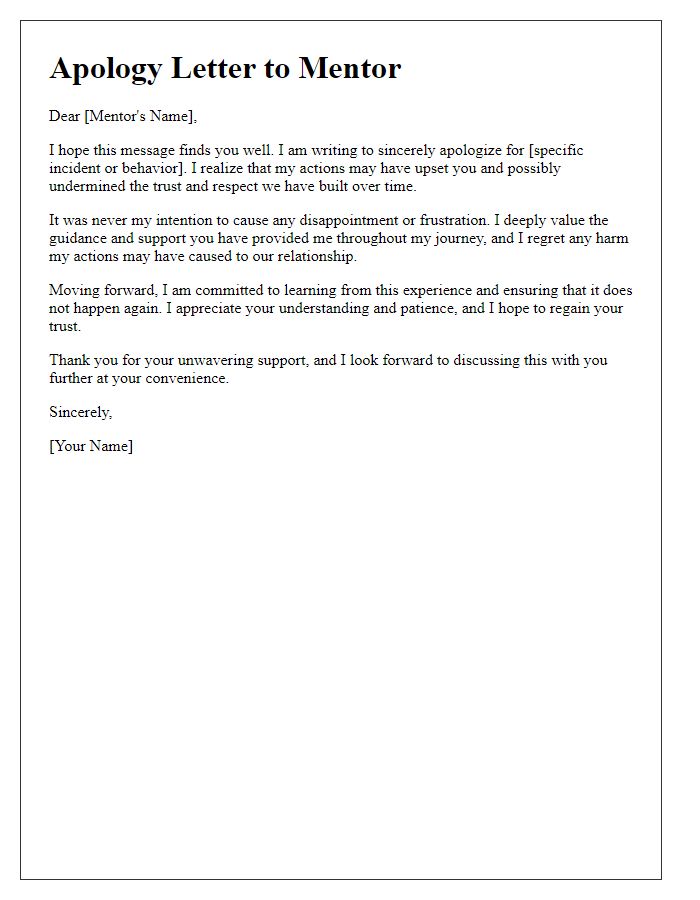
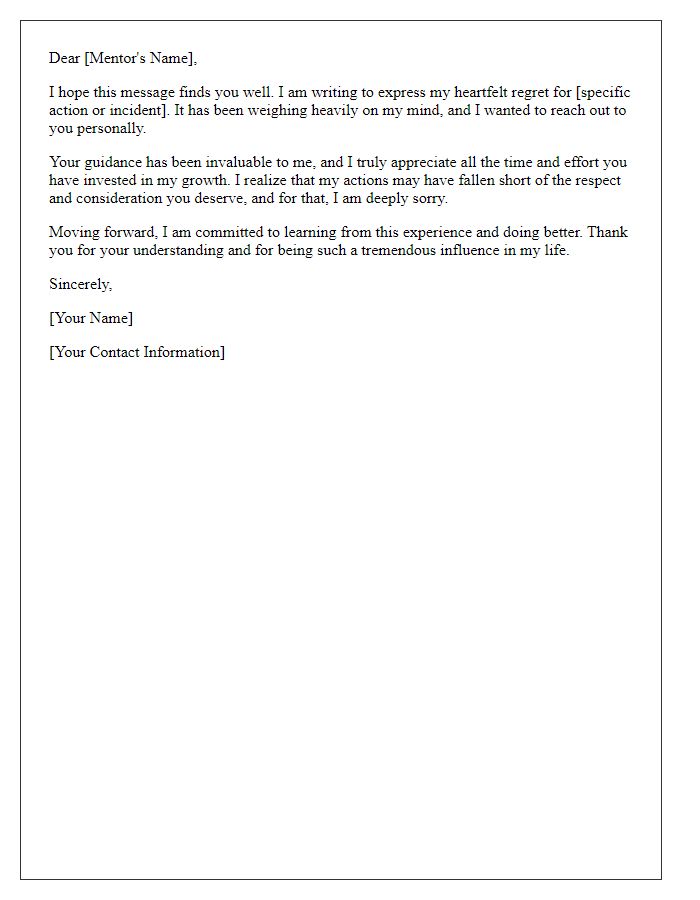
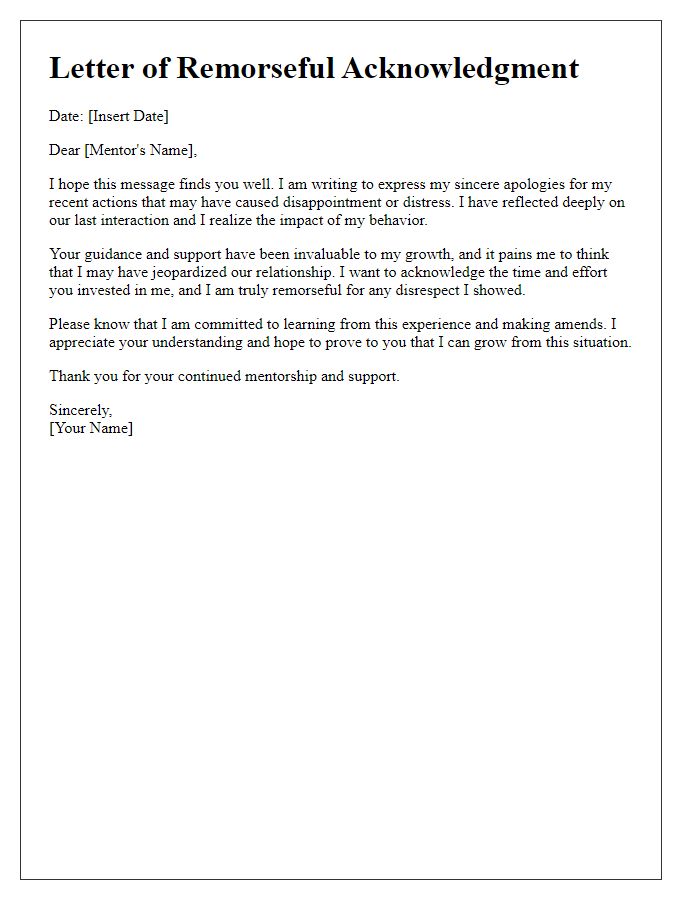
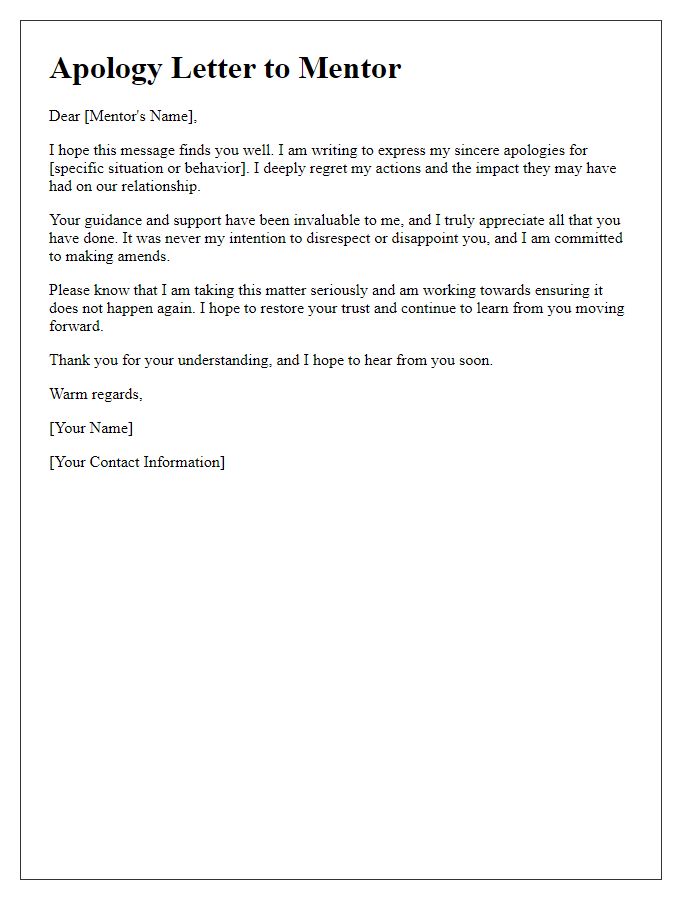
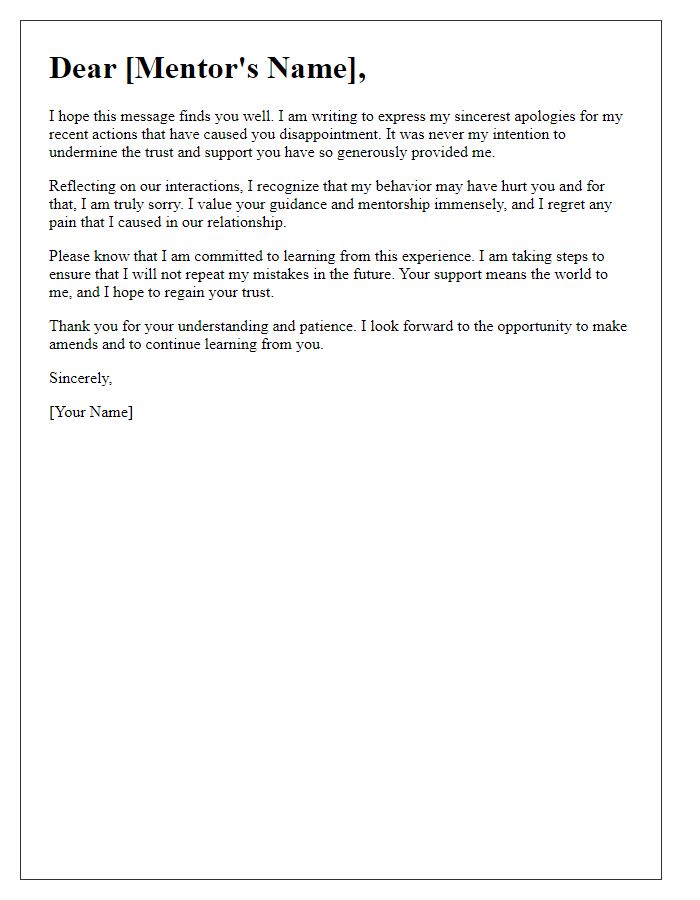
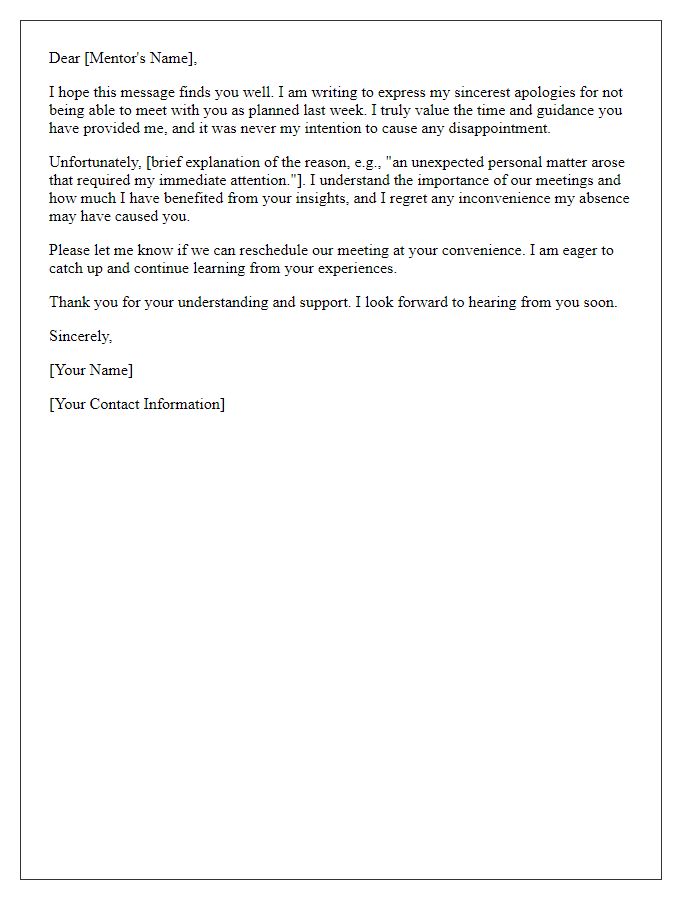
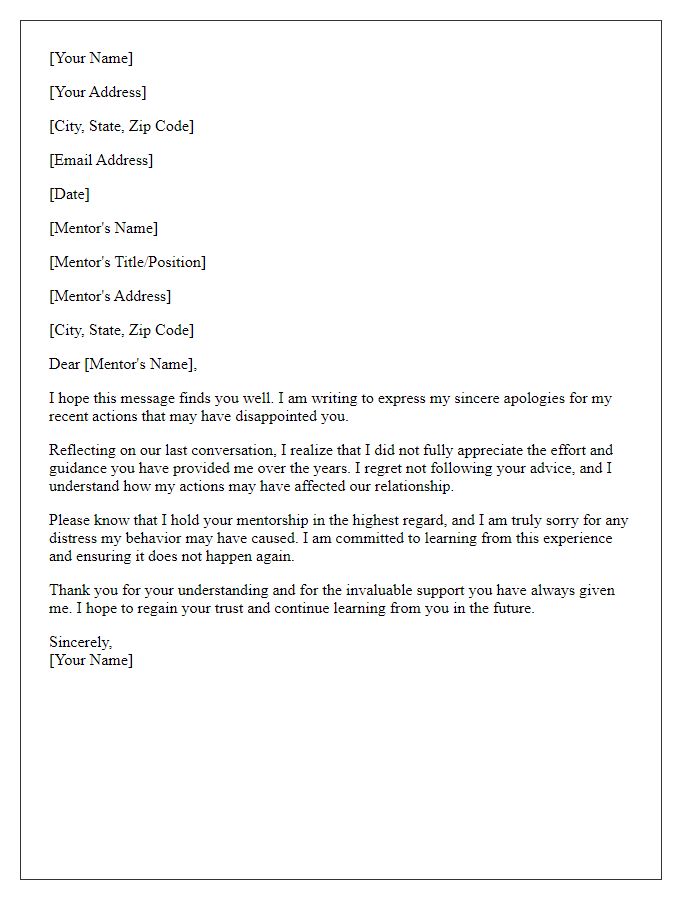
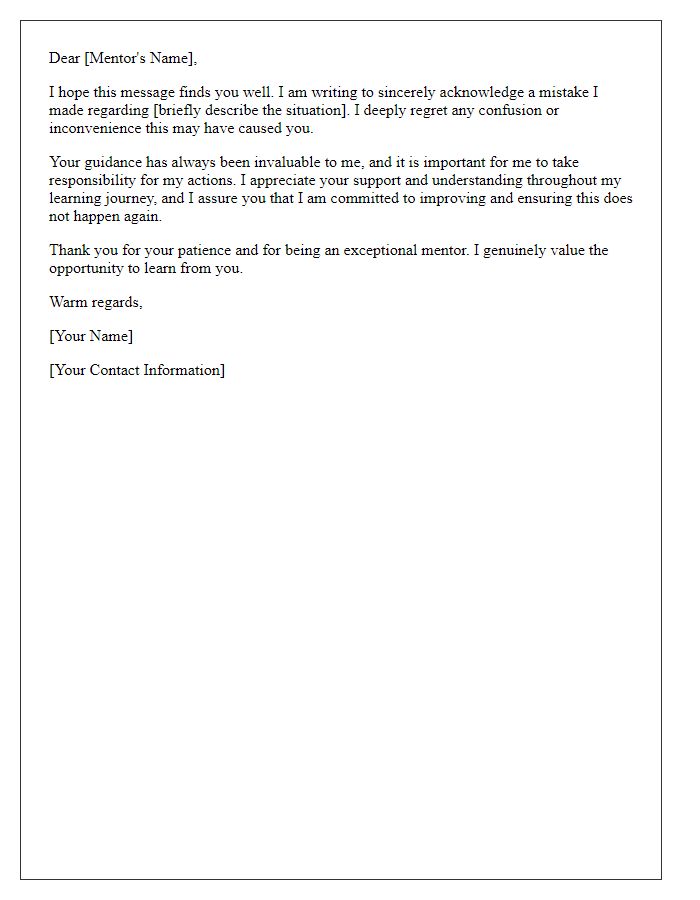
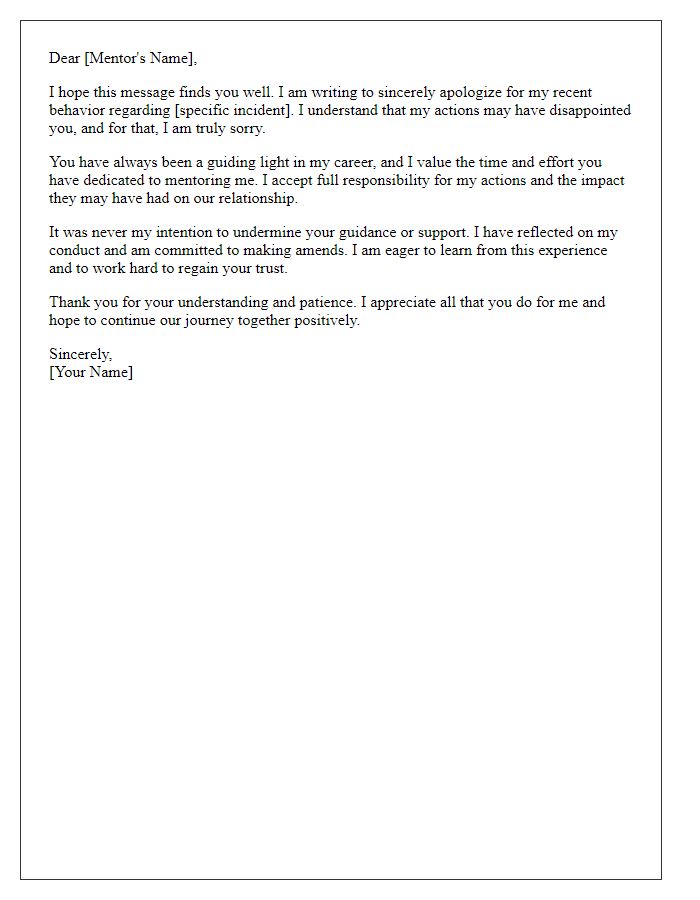
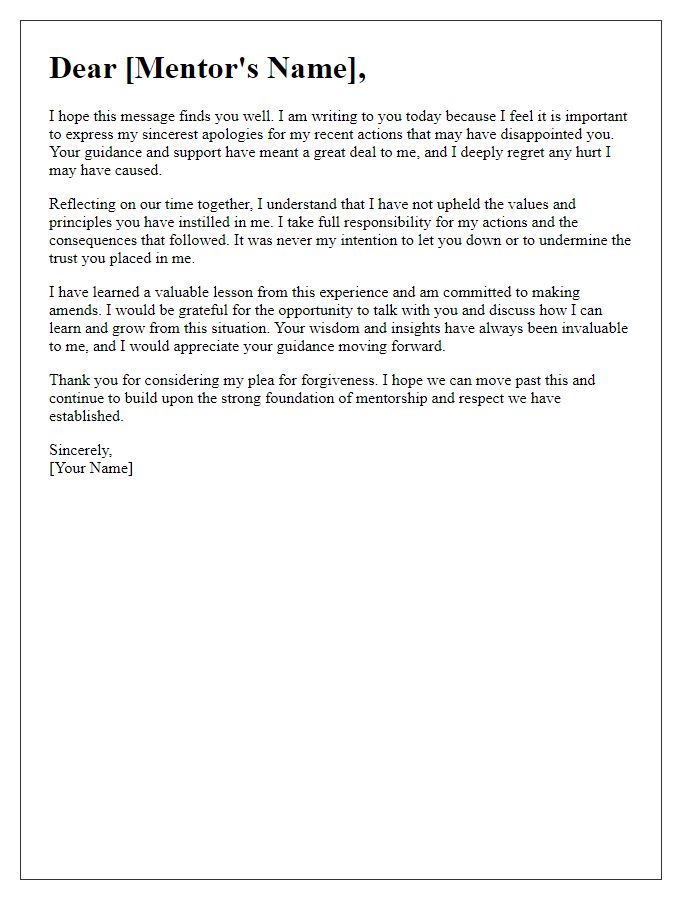


Comments